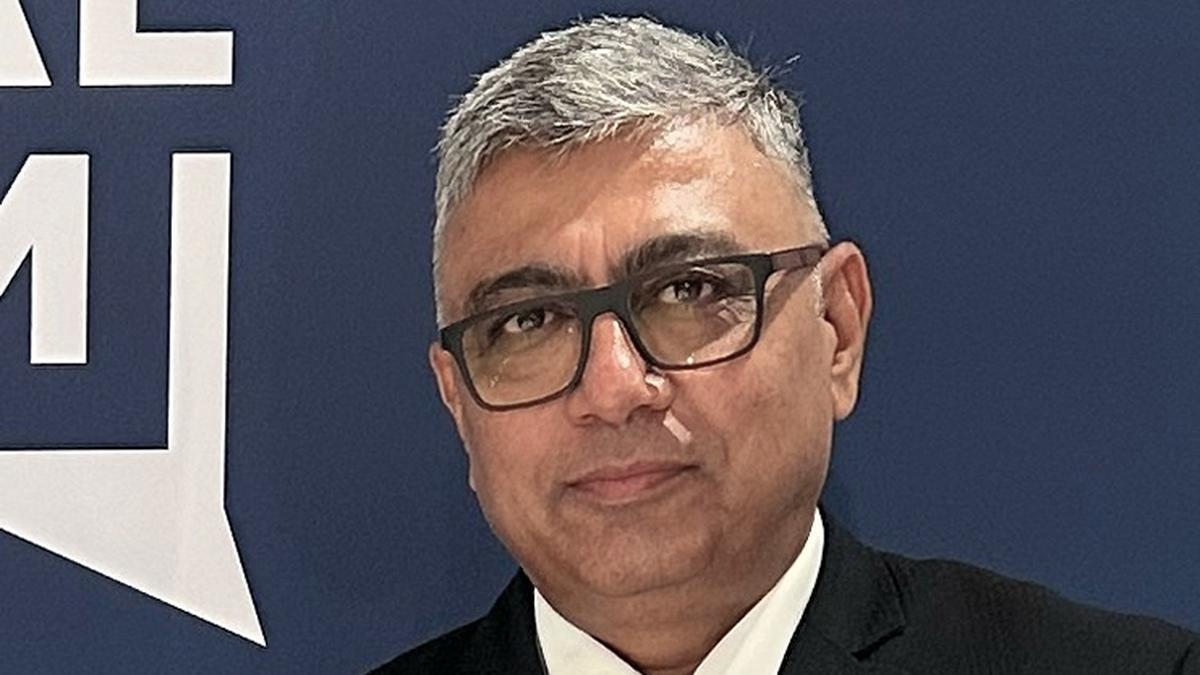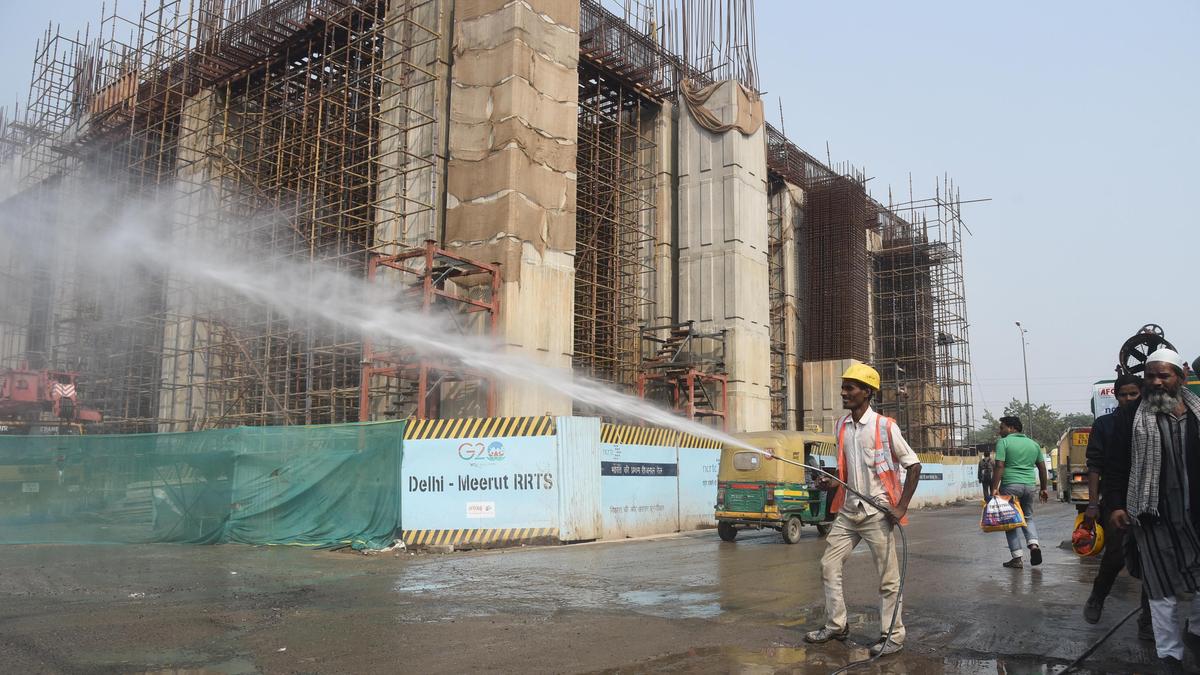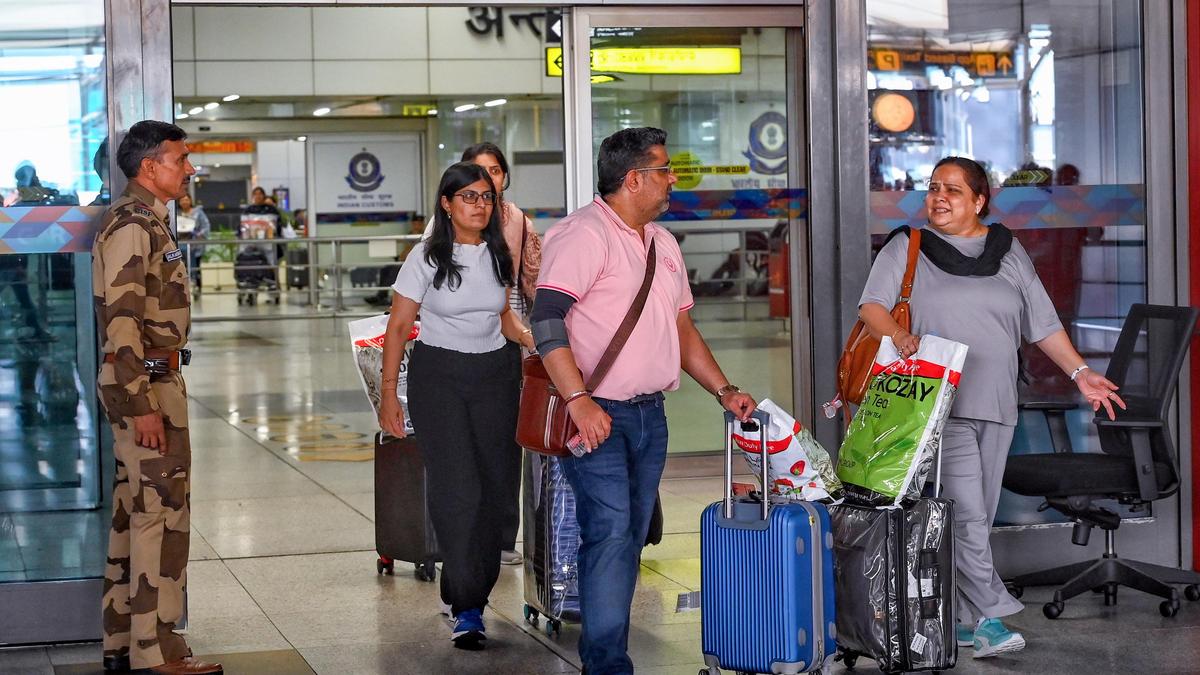Pharmexcil chairman Namit Joshi. File
| Photo Credit: Special Arrangement
India’s pharma exporters body Pharmexcil does not anticipate any immediate impact of the 100% tariff on branded and patented pharmaceutical imports the U.S. President Donald Trump annnounced on September 25 (Thursday) that left the world trade already reeling under his other recent tariff decisions in a tizzy and scrambling for clarity.
“The proposed 100% tariff on branded and patented pharmaceutical imports is unlikely to have an immediate impact on Indian exports, as the bulk of our contribution lies in simple generics and most large Indian companies already operate U.S. manufacturing or repackaging units and are exploring further acquisitions,” Pharmexcil chairman Namit Joshi said in his first reaction to the announcement.
Prudent to remain prepared
Referring to the ongoing investigations under Section 232 in the U.S., to determine the effect of imports on the national security, he said they appear to be focussed elsewhere and have not taken a direct call on generics. “Nonetheless, it is prudent to remain prepared for future policy shifts and to build risk-mitigation strategies,” said Mr. Joshi, the elected head of the Pharmaceuticals Export Promotion Council of India, a body that functions under India’s Commerce Ministry.
Hours after the U.S President’s announcement, Mr. Joshi, in a statement, also sought to underscore the importance of India reinforcing its cost-efficiency advantage in bulk drugs and APIs — an area where the U.S. is likely to favour India over other suppliers — and simultaneously invest in next-generation opportunities such as complex generics, peptides, biosimilars and CAR-T therapies.
“Generics will remain relevant but will gradually mature; optimising costs and capabilities in these emerging categories will shape the next phase of growth,” he said, adding Pharmexcil will continue to engage with global stakeholders to ensure dialogue on these developments remains constructive and global supply of affordable, high-quality medicines remains uninterrupted.
Citing the importance of pharma supplies from India to customers globally, Mr. Joshi said “India has long been a cornerstone of the global supply chain for affordable, high-quality medicines, supplying nearly 47% of the U.S.’s pharmaceutical requirements, particularly in the generic drug market. Indian pharmaceutical companies continue to ensure the affordability and availability of essential medications — from life-saving oncology drugs and antibiotics to chronic disease treatments — helping stabilise global healthcare systems.”
Twofold impact for Indian pharma: Manoj Mishra
Commenting on the tariff development, Partner and Tax Controversy Management Leader at Grant Thornton Bharat Manoj Mishra said for the Indian pharma, which supplies nearly $20 billion of generics to the U.S. or about 40% of the country’s consumption, the impact is twofold.
Headwinds
Companies manufacturing branded products abroad for the U.S. may face headwinds, while domestic generic producers could see near-term gains as higher prices for branded drugs push demand toward cost-effective alternatives.
He said this describing the U.S. decision to impose 100% tariffs on branded and patent-protected medicines as a significant shift in trade policy, given pharmaceuticals were earlier exempt from reciprocal tariffs and the Section 232 duties.
Too early to comment: Laurus Labs’ founder and CEO Satyanarayana Chava
Hyderabad-based generic drug-maker Laurus Labs’ founder and CEO Satyanarayana Chava said it is too early to comment as world needs to understand the process to be followed by U.S. post the President announcement.
“However, we don’t see any significant implication of the additional tariff announcements. ARV (anti-retro viral) business accounting for 40% of the company’s revenue remain insulated as most sales are to the African region while non-ARV generics (around 27% revenue contribution) continue to be exempted as the U.S. generic margins are thin to absorb tariff hike.
On CDMO side (33% of revenue), “we are supplying Intermediate, advanced intermediates and APIs but not the finished formulations. We believe any tariff burden is likely to be passed on to our clients,” he said.
Diversify markets: ICRA’s Deepak Jotwani
ICRA V-P and sector Head, Corporate Ratings Deepak Jotwani said India’s strength lies in generic drug exports, which are currently exempt from these tariffs. However, a few Indian pharma companies with exposure to non-U.S. domiciled branded formulation/innovator drug companies, who in turn export to the U.S., by way of sales of APIs or intermediates to them or undertaking contract manufacturing, may face headwinds.
“The tariff proposal is yet another call highlighting the importance for Indian pharma companies to diversify markets and innovate in complex generics and biosimilars to stay resilient in a changing global trade landscape,” he said.
Published – September 26, 2025 12:16 pm IST




